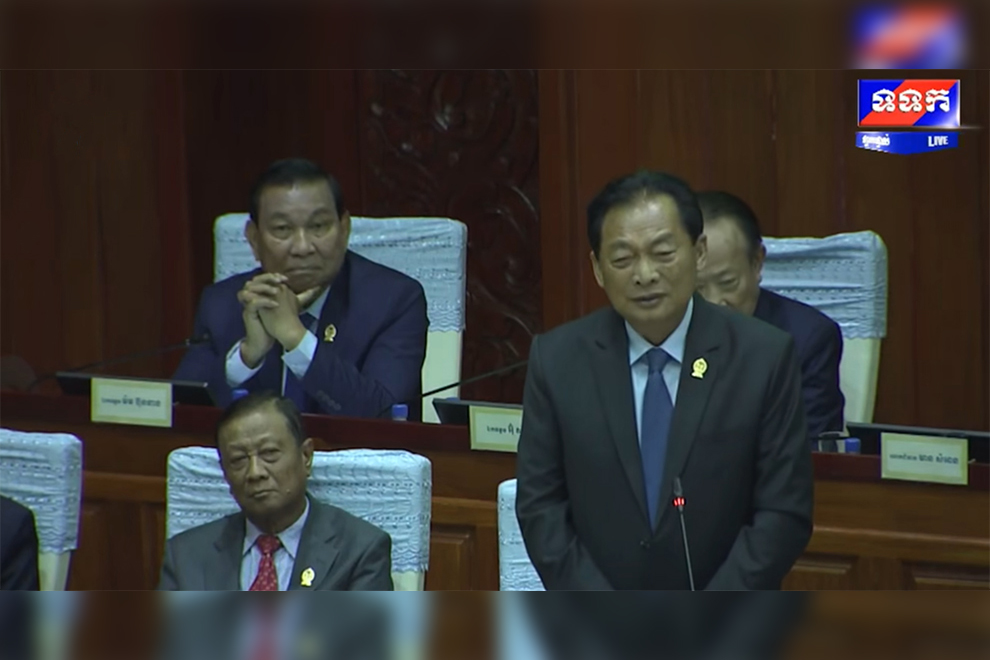
Senator Mong Rithy called on the government to inspect the quality of imported fertilisers and seeds. TVK
Members of the Senate and National Assembly have urged the government to inspect the quality of imported chemical fertilisers and fruit seeds, while encouraging farmers to expand organic farming operations to protect public health.
During a June 3 joint session of the National Assembly and Senate, Senator Mong Reththy called on the government to examine the quality of the fertilisers and fruit seeds being imported from neighbouring countries.
“Please help inspect imported fertilisers, especially their quality. Don’t allow low-quality fertilisers to be sold to our farmers, which end up being used in fields and result in low yields and high production costs,” he appealed.
He also urged more efforts to produce domestic seeds, rather than depending on imports.
“I ask the government to pay closer attention to producing fruit tree seeds. Neighbouring countries sell us fruit seeds that they’ve stopped using themselves,” he said.
“They don’t want us to have high yields. They make sure we produce less so that we’ll have to import fruit and vegetables from them — sometimes it contains chemicals and [we get sick] and possibly end up being sent to their hospitals,” he added.
He noted that successful farming depends on four essentials: seeds, fertiliser, water and land. For land that lacks natural nutrients, soil improvement is necessary to boost productivity.
Reththy also praised the government’s efforts to overcome past hardships.
“The government started with empty hands — we didn’t even have rice to fill the pot — and now we produce enough rice to export some of it,” he said.

Prime Minister Hun Manet and agriculture minister Dith Tina attend the June 3 meeting of the National Assembly and Senate on the agricultural agenda. Agriculture ministry
Prime Minister Hun Manet and Minister of Agriculture, Forestry and Fisheries Dith Tina attended the joint session, which was presided over by Senate president Hun Sen.
Kandal province lawmaker Ty Sokun encouraged the government to promote the expansion of safe farming practices nationwide. This includes the adoption of Good Agricultural Practices (GAP) and organic agriculture.
“We should focus on the types of seeds. We have more potential than many other countries because we haven’t overused chemical fertilisers and pesticides like some of them have,” he said.
Pa Chanroeun, president of the Cambodian Institute for Democracy, agreed that Cambodia no longer faces food security issues. However, he stressed that the government must focus on food safety and the quality of fertilisers and agricultural chemicals, which impact soil quality, ecosystems and public health.
He warned that highly toxic fertilisers and produce could lead to serious health problems, including cancer.
“Prevention is better than a cure. If the government ensures the safety of food, vegetables, fruits, fish, meat, fertiliser and agricultural chemicals, it will enhance social protection policies and improve public health,” he said.










